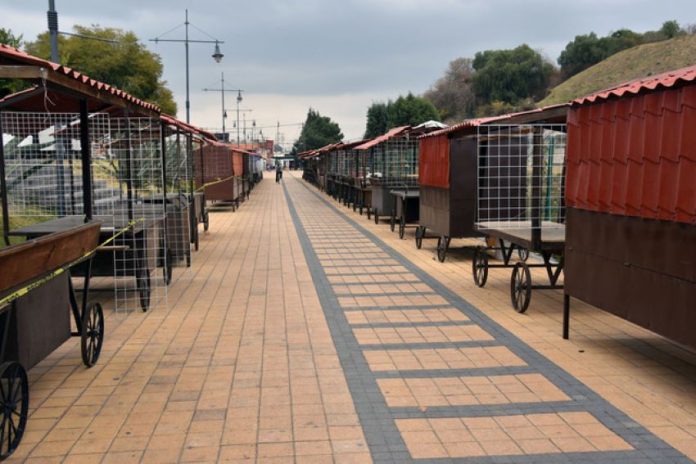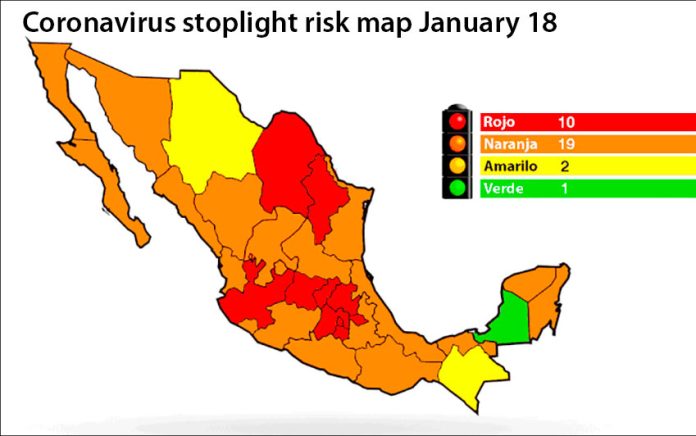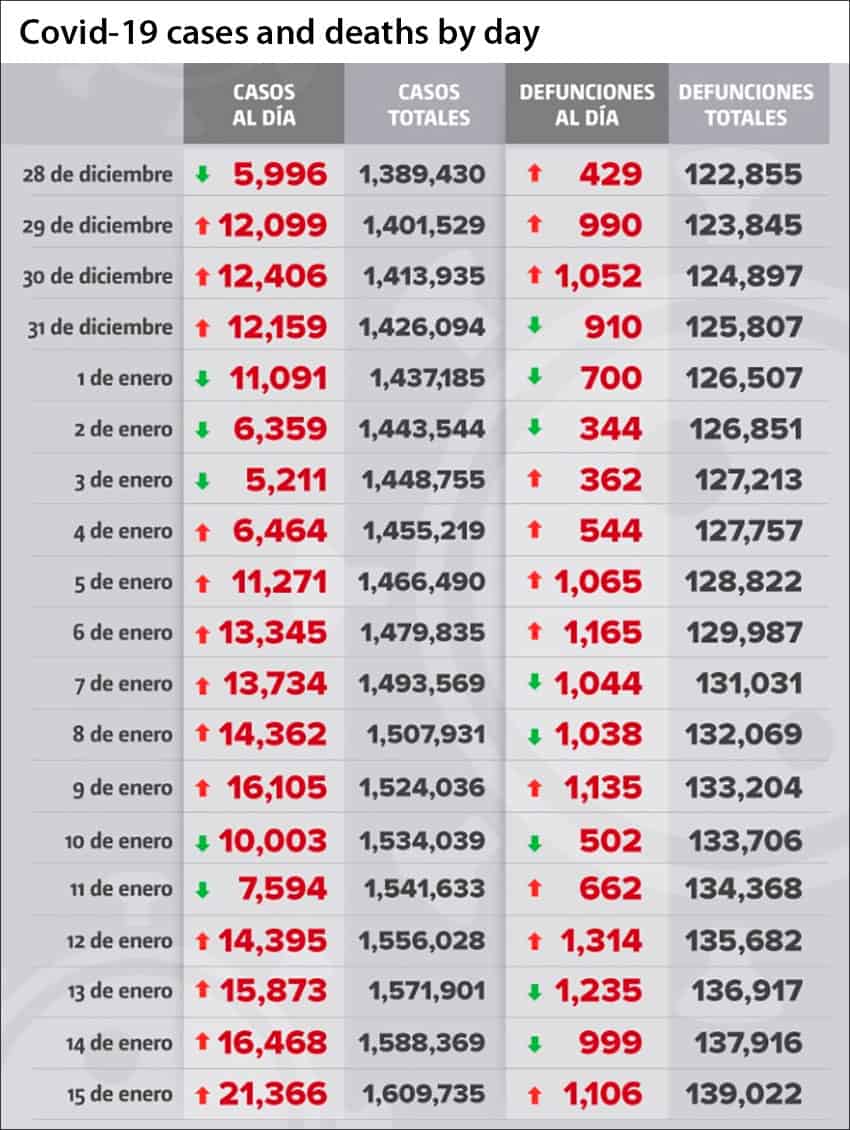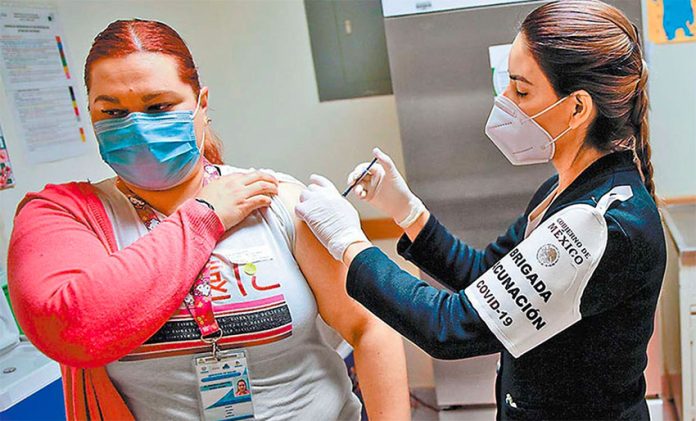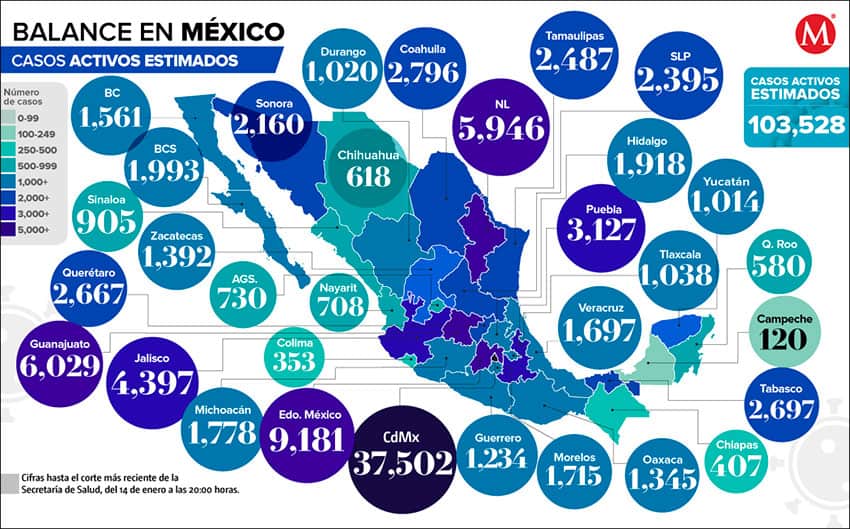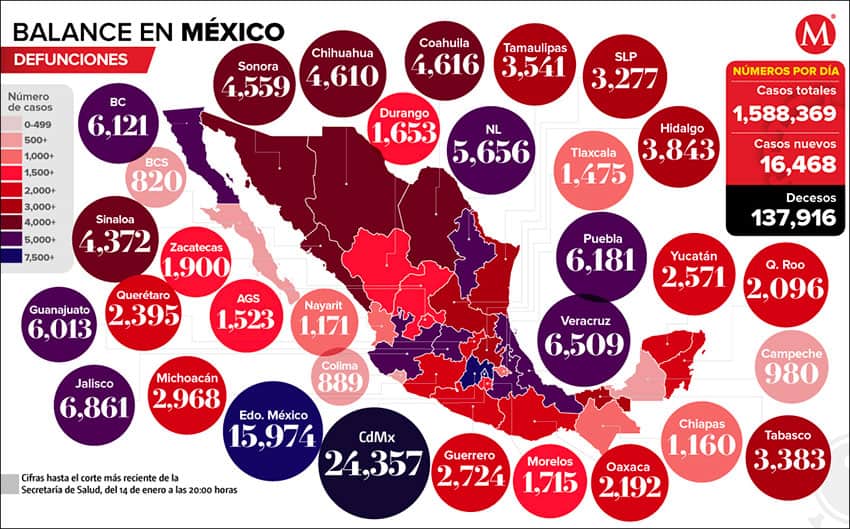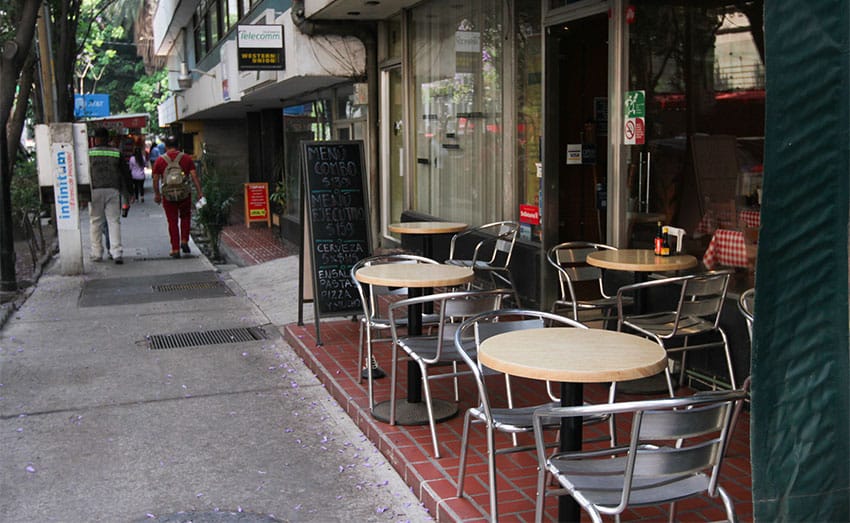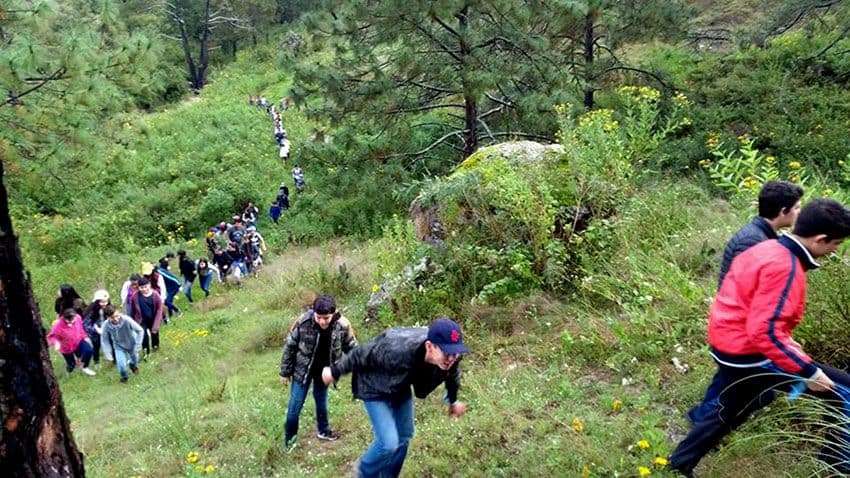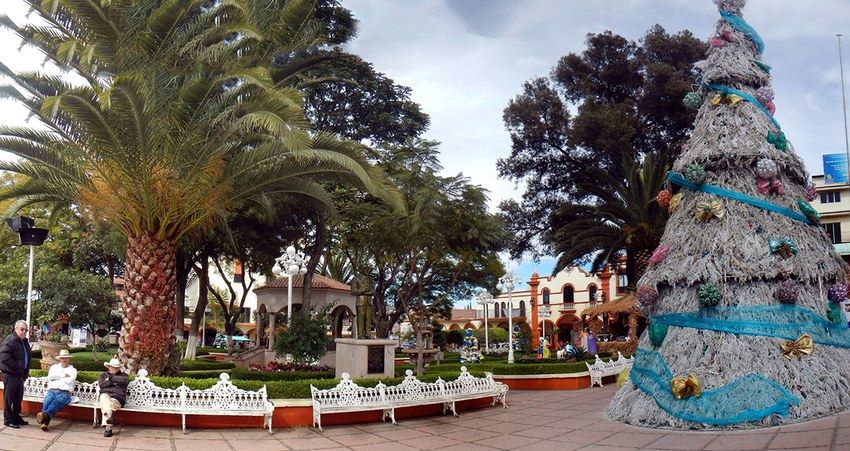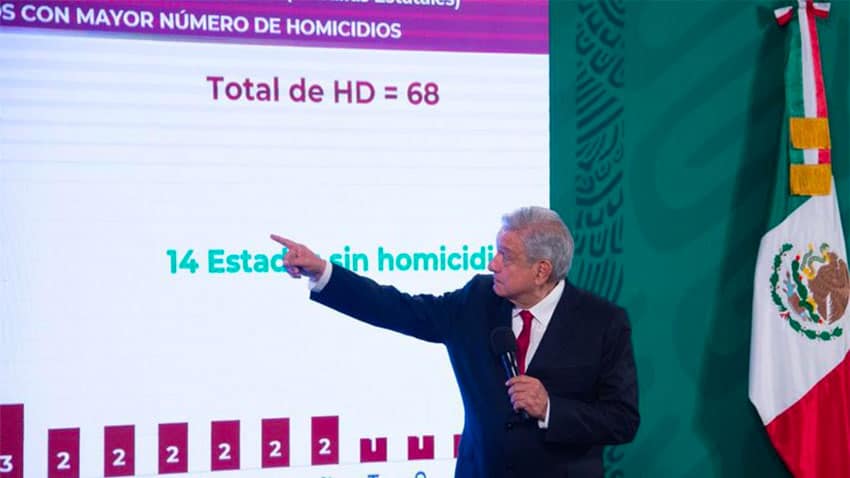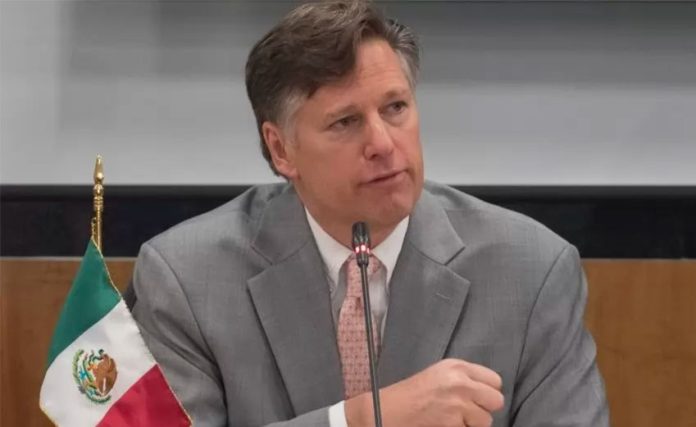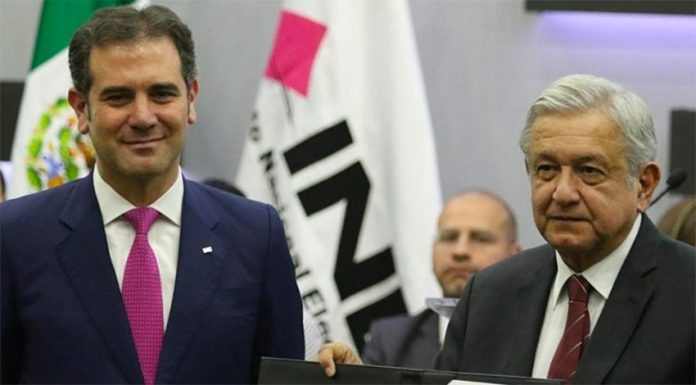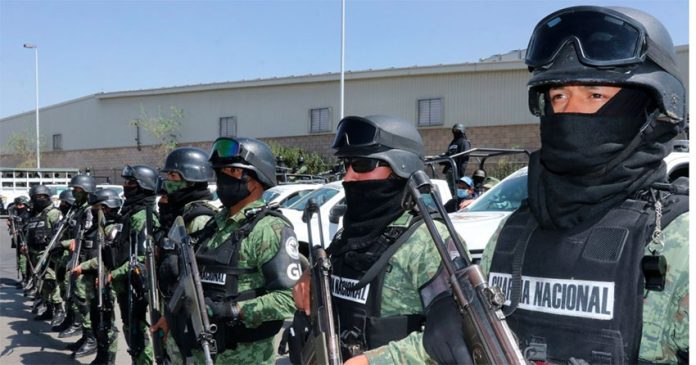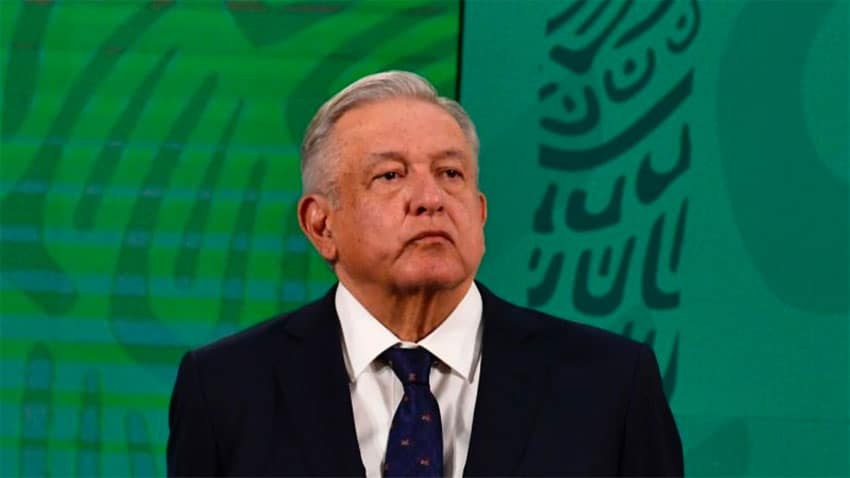Cholula, Puebla, has been designated a magical town by Mexico’s Secretary of Tourism, and it’s easy to see why.
There’s Tlachihualtepetl which, by volume, is the world’s largest pyramid. There’s also its adjacent archaeological site. There’s Avenida Morelos with its colorfully painted stores selling locally made crafts. There’s the zócalo, which features a dozen or so restaurants.
In normal times, it’s a major tourist site. But these are anything but normal times.
Due to the coronavirus pandemic tourism has fallen off dramatically, and on December 29, Puebla Governor Luís Miguel Barbosa announced a closure of all nonessential businesses because of the “exponential growth” in the number of infections and hospitalizations. The lockdown was initially scheduled to end January 11, but as the number of Covid-19 infections continues to climb, it has been extended at least until January 25.
Avenida Morelos, usually filled with tourists and ambulantes (street vendors), is empty, and there are parts of Cholula that feel like a ghost town. Store and restaurant owners, already hurting because of the drop in tourism, are wondering how — and if — they can survive the lockdown.

Martha Cabrera opened Jade Azul, a jewelry store on Avenida Morelos, four years ago. She designs and makes all the jewelry. Her store, like others deemed nonessential, is closed. Her income dropped about 40% as the pandemic took hold.
“Before the pandemic, I would have maybe eight or nine customers a day,” she said. “During it, maybe four. I can survive on that but I cannot buy anything extra.”
With the lockdown, her financial situation worsened. She’s only been selling a few items on her Facebook page and taking orders from regular customers,
“[Now] I am earning much less than half of what I usually earn, probably 60% or 70% less,” she said. “If the lockdown lasts a month longer, I will have to pay my bills using my savings. I will not be able to survive for more than three months.”
Just down the block from Cabrera’s store is Jacinta Casa de Diseño, an artists’ cooperative selling a variety of handmade goods. Claudia Susana González Leal has run it for two years. The store carries items made by González and seven other families. Sombreros, books, and embroidered shoes and shirts fill every inch of space.
“We normally have 30 people a day stopping in,” she said. “During the pandemic, maybe 15. Our income is down by half.”
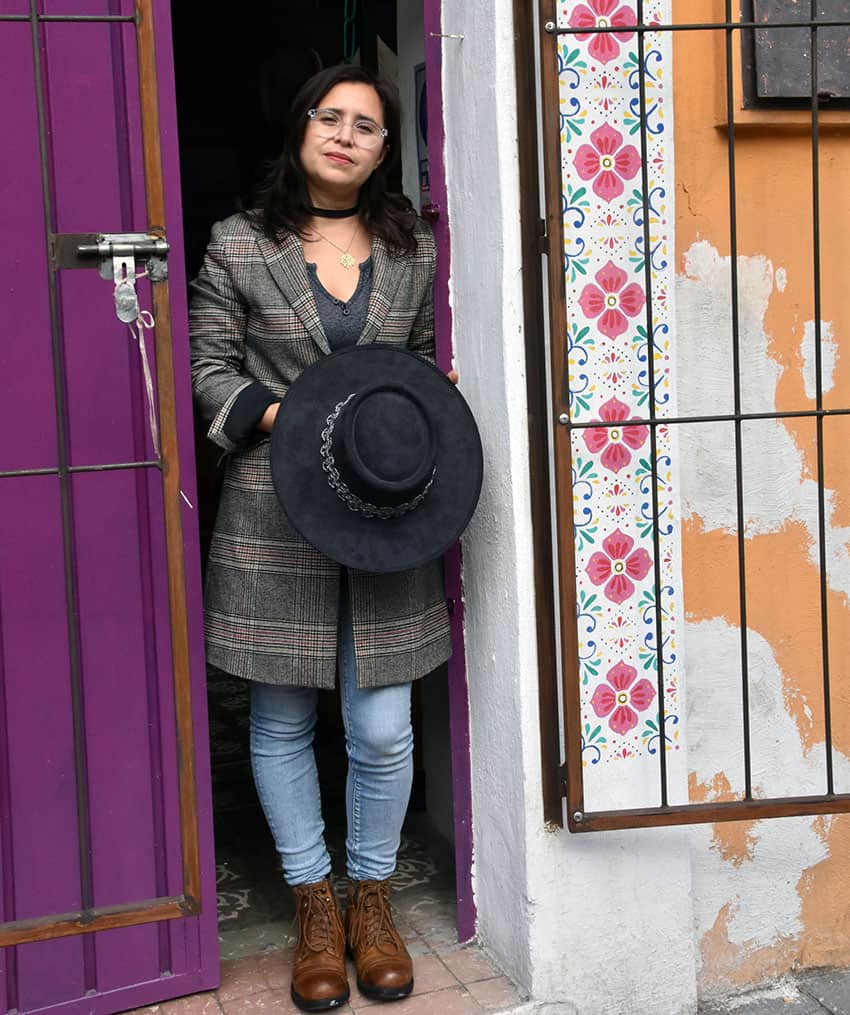
Now with the closures, there are no customers and the store’s income is zero, giving way to a negative trickle-down effect. Although González isn’t earning any money from the store right now, her husband’s job is providing her family with enough income to survive; but most of the other artists have no other way to earn money.
“They are all small craftspeople, and no one has a website,” she said. “They don’t know how to build one.
“This artisan is from Tlaxcala,” González explained, holding an embroidered sneaker. “She employed five people. Now it is only her, and she is struggling to survive.” She pointed to shelves of handmade books. “He had three people working and had to let them all go.”
Like most business owners, and, indeed, like most people, she understands the reasoning behind the governor’s decision to close nonessential stores but wants the government to provide some aid.
“For small business owners, to continue like this is impossible,” she said. “The government needs to help at least with our mandatory payments like lights, water, trash.” She was bothered that buses, vans and markets — which are crowded — continue to operate at their usual capacity. “It is,” she said, “a great contradiction.”
Restaurants line the wide walkway along one side of Cholula’s zócalo. It’s typically filled with tables and packed with customers. But there are no tables now and few customers since restaurants are only allowed to offer takeout service.
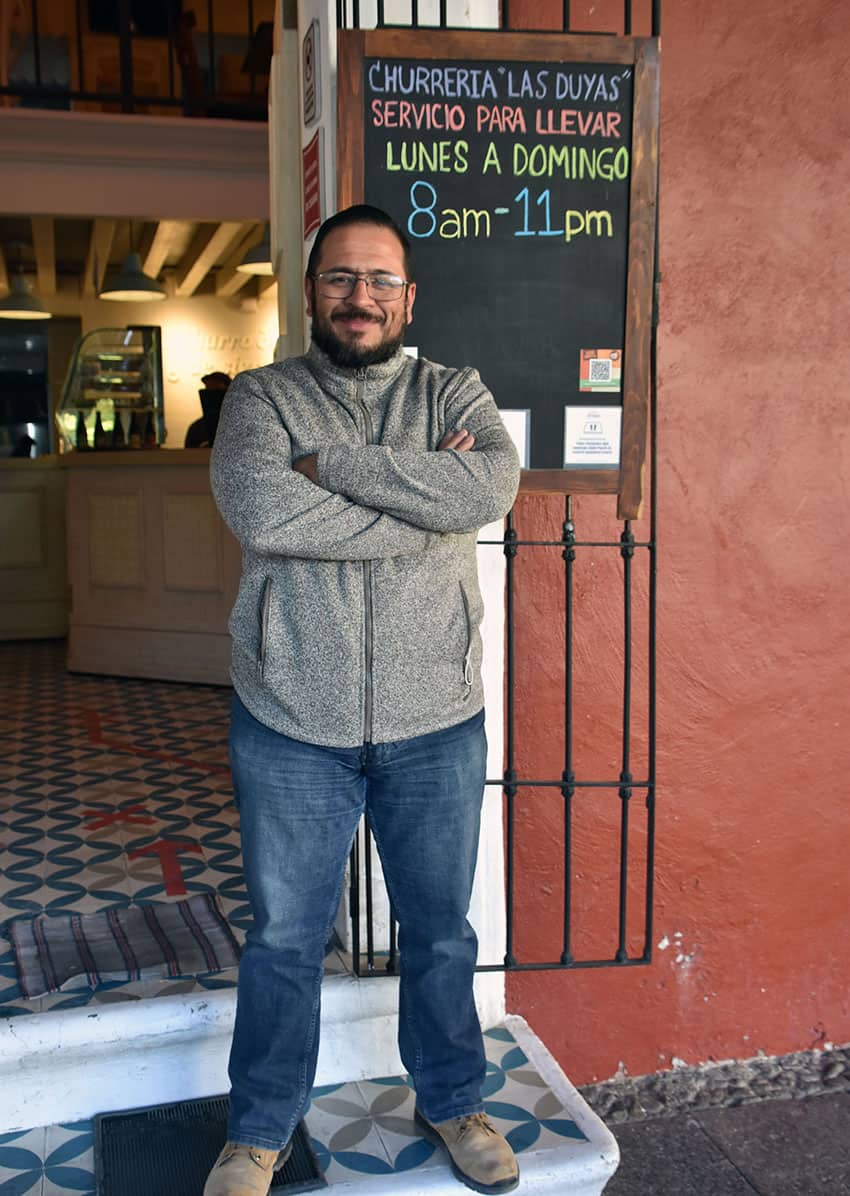
Churrería Las Duyas is one of the restaurants on this strip, and it features, as its name indicates, churros, a fried-dough pastry that’s coated with sugar and often filled with jelly, chocolate or cajeta (caramel), along with a variety of sandwiches.
“We have been here almost 20 years,” said owner Victor Alfonso Aguilar Galeana. “Before the pandemic, we averaged 300 people day. During the pandemic, the numbers were down 40% to 50%. Now, with closures, maybe 50 people a day. It is not possible to survive. In fact, it is impossible. A restaurant exists to wait on people, and now it is only for takeout.”
The decrease in the number of customers has forced him to severely curtail his employees’ hours.
“Normally, we have 20 to 25 employees a shift, two shifts a day,” he said. “Now there are five or six during the day and six to eight at night. Everyone comes in for a shift. Everyone gets two to three shifts a week. They usually earn a good amount from tips, but now there is nothing.”
It’s not clear how his workers are able to survive or what they’ll do if the closures continue.
Aguilar, unlike González, doesn’t agree with the governor’s decision to close stores “because not all stores are closed, only the formal businesses, not the informal ones,” he said. “And they cannot say which business is essential. All businesses are essential because we all have to work.”
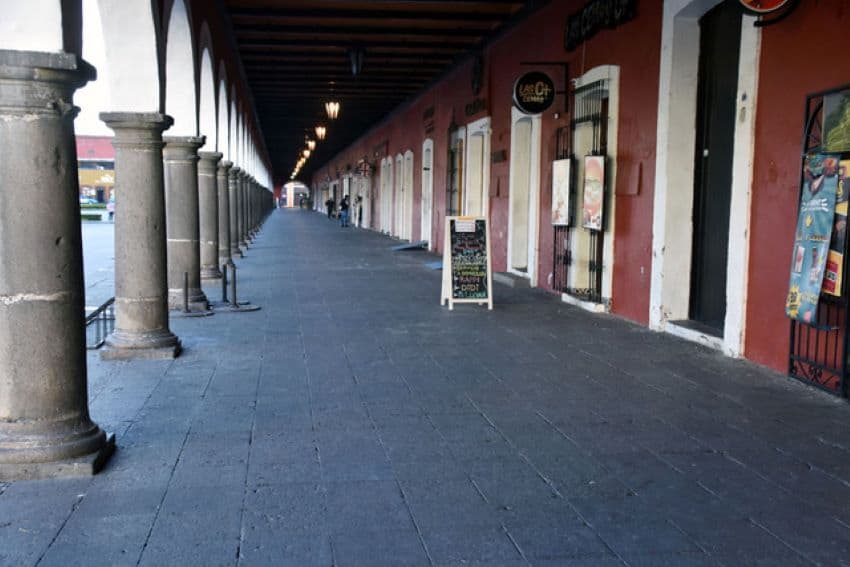
All three proprietors said the government must help them economically, something President López Obrador has been reluctant to do. To date, most federal aid has only been in the form of loans to small businesses.
There have recently been some talks between Cholula Mayor Luís Alberto Arriaga Lila and business owners, and there are indications that the municipal government is looking for ways to help. But, as yet, there are no concrete plans.
If the closures continue, owners and their employees won’t be the only ones suffering. Cholula itself may soon face a crisis.
“The worry is that formal businesses are not generating money,” said Aguilar, “so the government is not getting money from taxes like before.”
“If the stoplight doesn’t change,” said González, “there won’t be any tourists at all.”
These stores are primarily for foreigners, tourists, very few Cholulans, Cabrera explains.
“Without tourists, Cholula will not survive,” she says. “It cannot continue without foreigners who have more money.”
Joseph Sorrentino is a regular contributor to Mexico News Daily.
